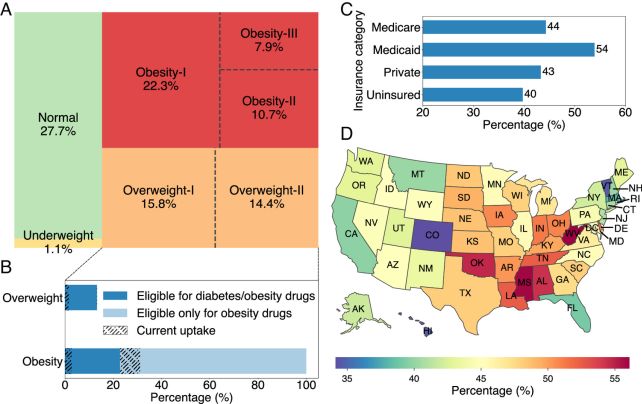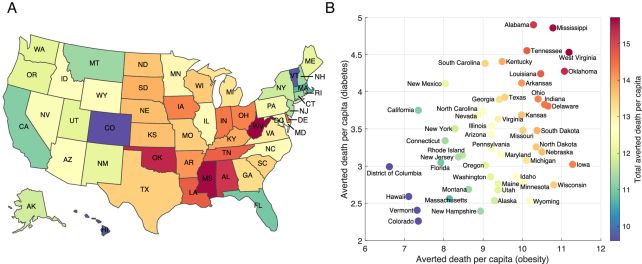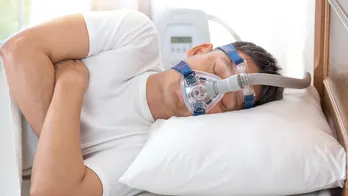Boosting Access to Weight-Loss Drugs Could Save Thousands of Lives
The lives of Americans could be dramatically improved, and in thousands of cases even saved, by increasing access to weight-loss drugs, scientists at Yale and the University of Florida have found.
At current access levels, an estimated 8,592 lives – mostly among patients who have private insurance – would be saved each year. Access to drugs such as semaglutide (sold as Ozempic and Wegovy) and tirzepatide (Zepbound), which are seeing increasing popularity for aid in excess weight reduction, could decrease the annual death rate in the US by an estimated 42,027 more people.
"Expanding access to these medications is not just a matter of improving treatment options but also a crucial public health intervention," says epidemiologist Alison Galvani of the Yale School of Public Health. "Our findings underscore the potential to reduce mortality significantly by addressing financial and coverage barriers."
The US is in the throes of an obesity crisis. According to the CDC, some 73.6 percent of American adults are overweight, with a body mass index (BMI) at or over 25. That includes the 41.9 percent of Americans that are considered obese, with a BMI at or over 30.
Obesity is linked with an increased risk of a whole range of serious health problems, such as cardiovascular disease, heart failure, liver disease, depression, cancer, stroke, and diabetes, all of which can shorten a patient's lifespan.

Led by epidemiologist and data scientist Abhishek Pandey of Yale University, a team of scientists set out to quantify the impact of expanding access to weight-loss drugs on the US mortality rate from many of these obesity-related diseases.
They created a map of the BMI distribution across the US, and cross-referenced it with the percentage of Americans who are currently able to access weight-loss prescriptions. This allowed them to accurately quantify the mortality rate from obesity-related complications directly attributable to a lack of access to these prescriptions.
"Limited access stems from a combination of financial barriers, supply constraints, and restrictive insurance coverage," the researchers write in their paper.
"Although insurance typically covers these medications for diabetes treatment, coverage for weight-loss is less consistent, often requiring patients to pay out-of-pocket or face restrictive insurance policies. Furthermore, 25.6 million Americans are uninsured and more than 80 million are inadequately insured. Currently those uninsured with diabetes or obesity have no access to these innovative weight-loss drugs, and access is challenging even for those with coverage."
They determined that, if everyone who should be eligible for weight-loss prescriptions was able to obtain one, the obesity rate in the US would fall to 38 percent, and more than 50,000 lives would be saved annually.

This is the best-case scenario, in which neither cost nor supply are barriers to access. Even with these barriers in place, however, increased access would dramatically reduce the mortality rate from obesity comorbidities, including a reduction in deaths from type 2 diabetes by 11,769 people.
The US touts itself as one of the richest countries in the world, but the study highlights that, in spite of the country's wealth, being poor can still kill you. The researchers believe that steps should be taken to address this devastating disparity.
"We need to ensure that drug prices are more aligned with manufacturing costs and increase production capacity to meet demand," explains mathematician Burton Singer of Yale University. "At the same time, we must tackle the insurance and accessibility issues that prevent many people from getting the treatment they need."
The research has been published in the Proceedings of the National Academy of Sciences.



